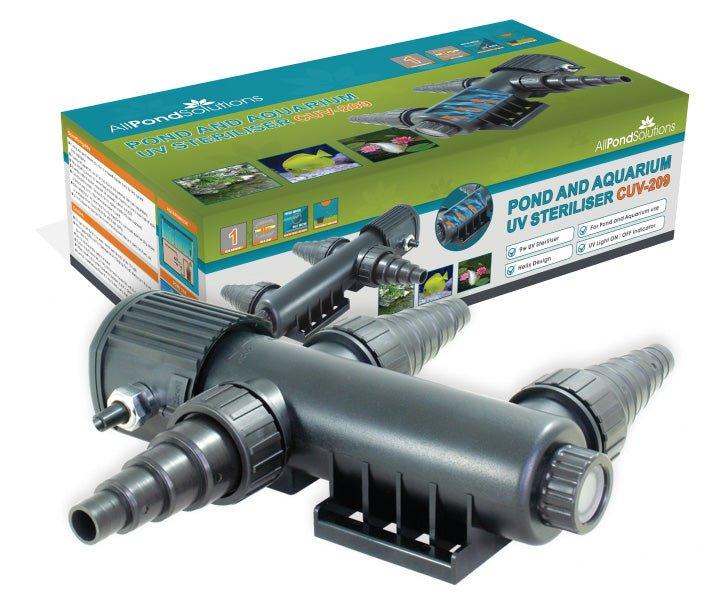How to Control Ammonia in My Fish Tank?
Toxins and bacteria in aquarium habitats can cause enormous harm to fish tanks and even be fatal to fish, so controlling the amount of ammonia nitrate with a quality aquarium filter and appropriate aquarium water treatments is crucial.
In this guide, AllPondSolutions explains what is ammonia, the risk to fish tanks, and how to pick the right Aquarium Treatments to solve the problem.
What is Ammonia - and is it Harmful to Aquarium Fish?
Ammonia forms naturally, often due to organic waste and uneaten Aquarium Fish Food build-up.
While not a synthetic substance, high ammonia nitrate concentrations make it tough for fish to eliminate the ammonia that their bodies produce, with potentially devastating consequences.
Without removing the ammonia through an aquarium filter, fish can experience stress, damage to their gills and organs, and even die - so it's not a condition to take lightly.
Controlling Ammonia Nitrate in Fish Tanks
Fortunately, there are many things you can do, but time is vital since ammonia nitrate is the most harmful toxin that fish can encounter.
If your aquarium test kits indicate dangerous ammonia levels, you should:
- Immediately change half of the water in your fish tanks.
- Use an aquarium vacuum to clean the gravel thoroughly, removing debris, dead fish, rotting plants and uneaten food as quickly as possible.
- Check your Aquarium Filter to ensure it is flowing properly and isn't clogged.
- Potentially reduce the amount of food you are offering.
- Use aquarium water treatments such as ammonia pellets to remove the excess in your filter.
- Continue to change the water daily until the ammonia nitrate drops to a safe level.
Choosing the Right Aquarium Water Treatments
Preventative measures are always the best option, so if you can regularly use an aquarium test kit, you'll usually catch any changes to ammonia levels before they become hazardous.
Weekly maintenance is also a great way to avoid continually buying aquarium water treatments, keeping your fish tanks clean and healthy.
Lastly, it's important never to overfeed fish - most fish species need feeding just once daily, and only to the level that all the food has been eaten, avoiding any uneaten food that will contribute to an ammonia spike.
